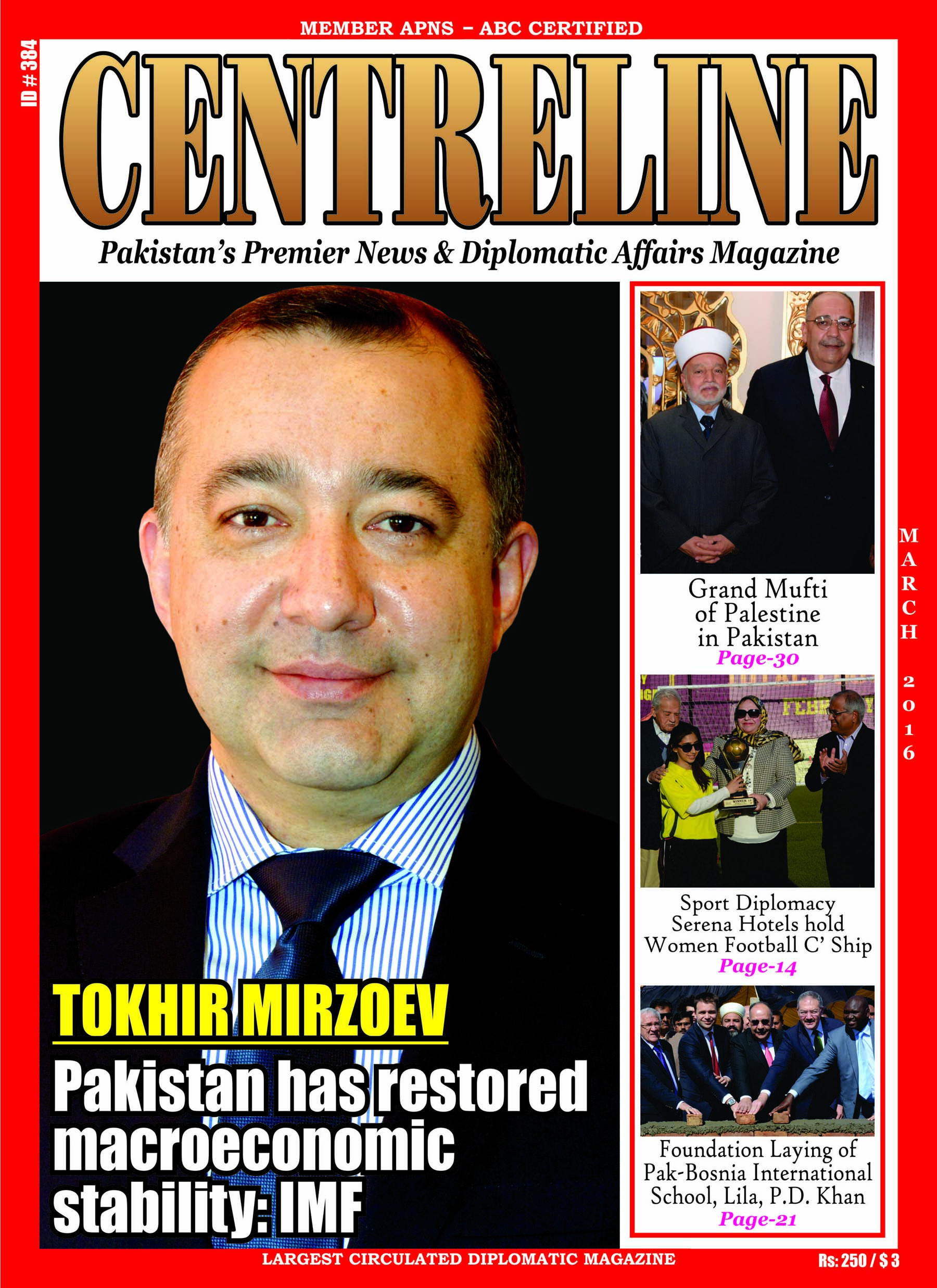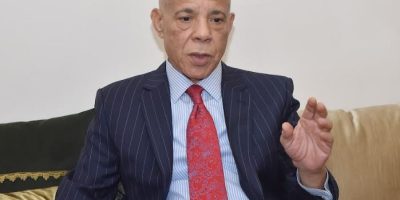Pakistan has restored macroeconomic stability: Tokhir Mirzoev IMF

Ansar Mahmood Bhatti
ISLAMABAD, MAR 01 (DNA) –Mr. Tokhir Mirzoev, the Resident Representative of International Monetary Fund (IMF) has said Pakistan has restored macroeconomic stability adding the recent discussions with the Pakistani authorities in Dubai were in the context of the 10th review under the country’s IMF-supported program.
He expressed these views while giving an exclusive interview to DNA, on Tuesday.
He further said, the three-year program was approved in September 2013 with the total assistance of about US$ 6.2 billion. Program implementation is monitored with quarterly reviews, where our team meets with key members of the economic teams of the government and the State Bank of Pakistan (SBP) to discuss progress to date and next steps. Nine program reviews have been already successfully completed, and about US$5 billion of the assistance package disbursed.
The IMF country head said, starting from a near-crisis situation, key goals this IMF-supported program were to support Pakistan in restoring and strengthening macroeconomic stability and launching wide-ranging structural reforms, most notably in the areas of widening the tax net, reforming the energy sector, restructuring or privatizing loss-making public enterprises, and improving the business climate.
A number of achievements have been accomplished, especially in the area of macroeconomic stability, and many structural reforms are in various stages of implementation, he added.
To a question about reforms process in Pakistan he said the authorities’ economic program targets five key areas. The program’s first priority was to restore and strengthen macroeconomic stability by rebuilding foreign exchange buffers of the central bank, strengthening public finances to contain public debt, and enhancing the monetary policy framework of the SBP.
“ Second, and related to the previous issue, is the need to widen the tax net and mobilize tax revenue to create the much-needed space for increased infrastructure, education, health and social assistance expenditure. Third, it is crucial to fix the energy sector in order to remove an important impediment to business productivity, improve living conditions, and reduce the impact of energy sector losses on the budget. Fourth, restructuring or privatizing loss-making public enterprises is important to close a drain on budget resources and increase the economy’s productivity. Finally, strengthening other aspects of the business climate is needed to improve competitiveness of the economy”.
He said, for each of these and several other areas, a reform agenda with a timetable of key actions was formulated. Implementation of this broad agenda has been the main topic of the quarterly IMF program reviews, which provide an opportunity to take stock of the progress achieved and to discuss and, if needed, adjust the plans for the period ahead.
To a yet another question about price hike in Pakistan Tokhir said IMF does not play any role in setting oil prices which are determined by global supply and demand. In the past two years, the oil price has been on the decline, which helped lower domestic inflation as well.
When asked to comment on Pakistan’s progress in achieving the goal of stability he said,
an important achievement was that, starting from a near-crisis situation, the authorities have restored macroeconomic stability, reflected in strengthened public finances and substantially rebuilt foreign exchange reserves.
While more still needs to be done, the authorities are making inroads in various important structural reform areas.
Tax revenue has been increasing, supported by tax policy and administrative measures. Most important measures here include strengthening of the tax regime by removing exemptions and concessions, and a more systematic approach to bringing various economic groups into the tax net.
A key achievement has also been to strictly limit the authorization of administrative tax concessions and exemptions through Statutory Regulatory Orders (SROs) to be temporary and only applicable in a number of exceptional circumstances.
In the area of social protection, the Benazir Income Support Program was significantly expanded, and stipends have been increased by more than 50 percent, he added.
Some progress has been achieved in the energy sector, where the load-shedding has gradually decreased and the financial performance of the sector is gradually strengthening.
For the first time during this program, there was no new accumulation of circular debt in the second quarter of FY 2015/16, helped by better collections and lower distribution losses, along with lower oil prices.
Another significant reform has been increased independence of the SBP. A new and independent monetary policy council is now operational and will help strengthen macroeconomic stability.
He said, it is important to note that many of these and other reforms remain at various stage of implementation and will need to continue beyond the IMF program. Maintaining the reform momentum will be critical to strengthen the economy and achieve higher and more sustainable growth.
With respect to subsidies, there has been a significant increase in international recognition that subsidies are not a good tool to help the poor.
Numerous studies have shown that, notably food and energy, subsidies disproportionately benefit the wealthy and only a small part reaches the people who are in real need of assistance. Thus, subsidies are both expensive and inefficient.
A much better tool to help the vulnerable groups is targeted social assistance, like the BISP program in Pakistan, which provides financial help directly to the intended beneficiaries.
Many countries which have had high levels of subsidies in the past have undertaken subsidy reforms, including Iran, Jordan, Egypt, Tunisia, and Morocco. A discussion of subsidy reforms has recently started in many Gulf countries, he added.
To a question about tax evasion he said, in addition to the basic statistics, such as tax revenue or the number of registered taxpayers, there is a variety of ways to track progress with tax compliance.
One example is the estimated tax gap, i.e. the difference between potential and realized tax revenue. In other words, if economic data on sales of goods under standard GST rate shows, for example, Rs.100, then potential GST revenue is Rs.17.
If actual GST receipts were only Rs.14, then there is a tax gap of Rs.3, or 18 percent. These estimates can be further complemented with indirect indicators of the size of informal economy, level of financial transactions, and so forth, he proposed. =DNA
==============
Related News

Pakistan-Africa ties poised for a quantum leap
Ambassador of Morocco Mohammad Karmoune says African Continental Free Trade Agreement presents an opportunity forRead More

DR SHUMAILA KHAN: An Aesthetic Physician par excellence
Mudassar Raja INTRODUCTION: Dr. Shumaila Khan is a well-known & energetic Aesthetic Physician, best InjectorRead More


Comments are Closed